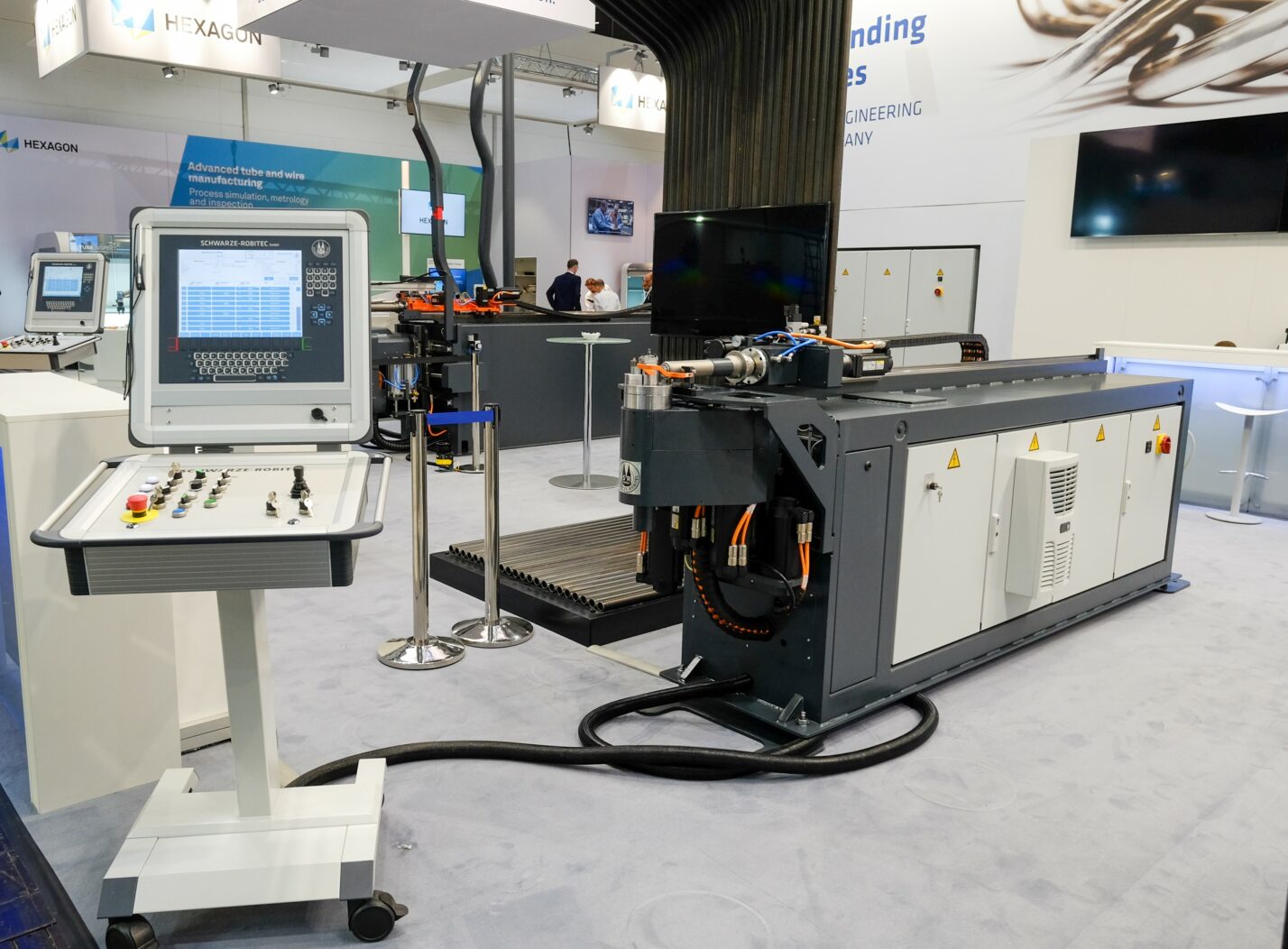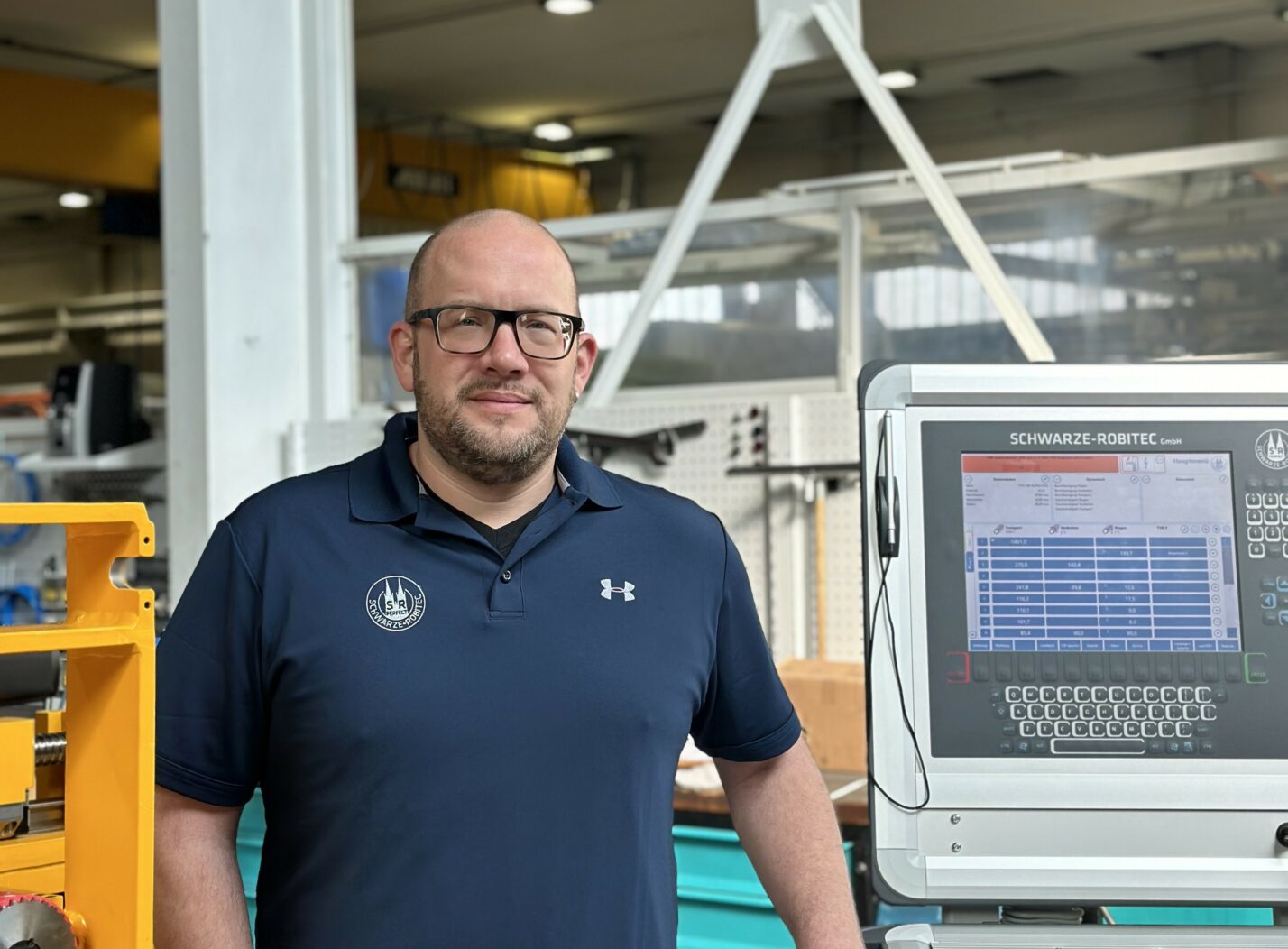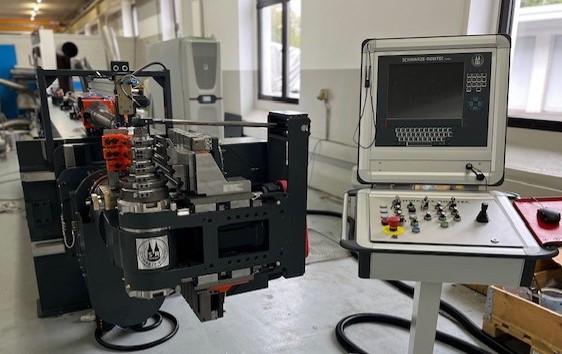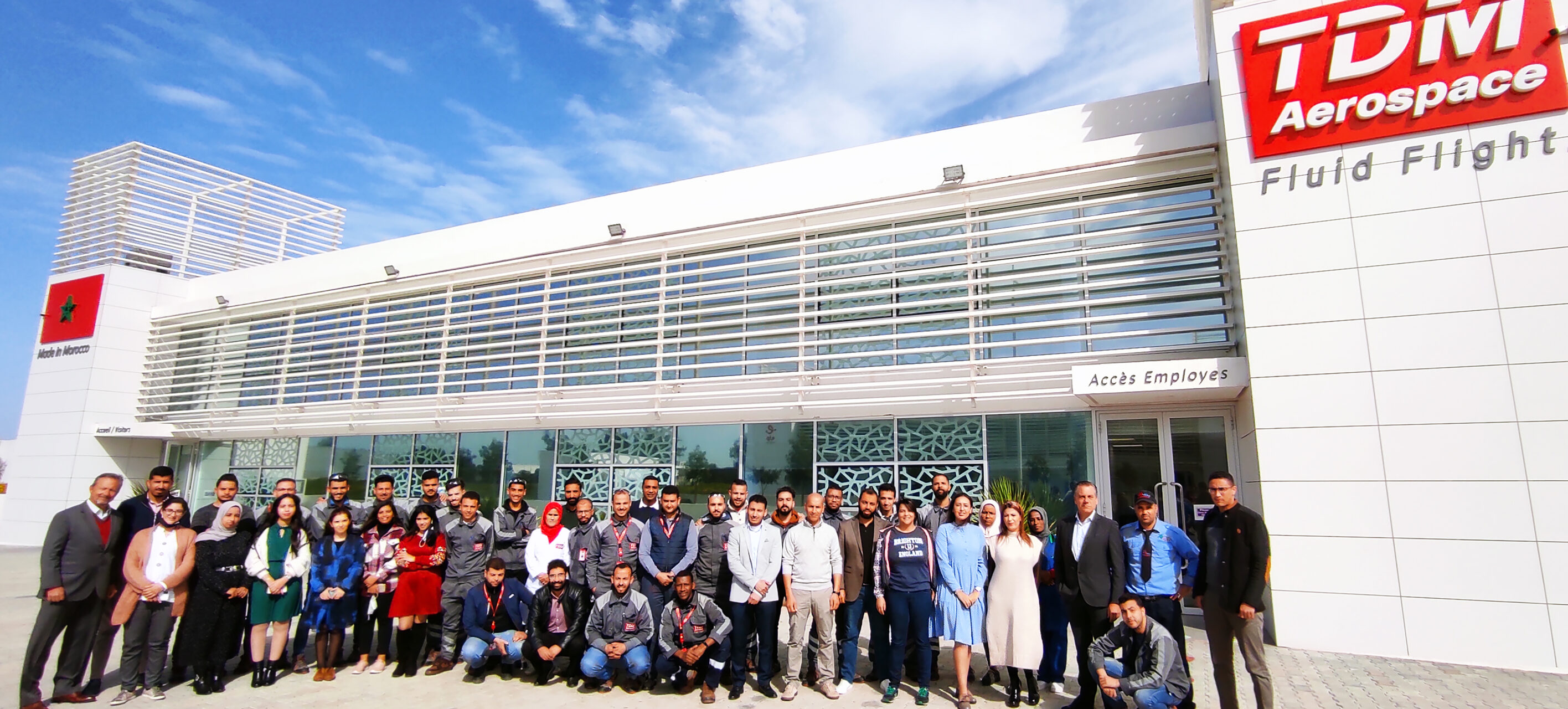
600 tubes for one aircraft: production at TDM supported by Schwarze-Robitec
The production of tubes for aircraft is subject to strict requirements, since even the smallest product defects can have fatal consequences. TDM, a company founded in Morocco, therefore relies on the experienced tube bending machine manufacturer Schwarze-Robitec, whose reliable, robust and precise machines are used to produce tubes of various geometries for aircraft manufacturers. The modern production facility is seen as a showcase project for the country, which is pursuing ambitious goals.
Tubes and Ducts Maroc Aerospace (TDM) was founded in Morocco in 2018. The company manufactures tubes for the aerospace industry and acts as a Tier 1 supplier for well-known aircraft manufacturers. TDM, which is based at Mohammed V Airport in Casablanca, currently employs 70 people and is a showpiece in the North African country’s strategy to become a major global location for aerospace system and module suppliers in the coming years. To this end, the Moroccan Aerospace Investment Company (MAIC) is investing in businesses like TDM and holds a majority stake. Morocco is aiming to further expand aerospace activities to create local supply chains and make the country a major trading partner. A number of free trade zones have been set up, and the kingdom provides very targeted support for companies in the aviation industry, for example offering financial assistance for employee training and granting other privileges.
On the search for a competent partner with experience
The founders of TDM have more than 60 years of experience in tube manufacturing for the aerospace industry. For the demanding production of tubes for hydraulic lines as well as cooling water, waste water and brake lines in aircraft, they were looking to find a manufacturer of tube bending machines with many years of expertise in the aerospace industry. “We needed a partner who could support us not only with high-quality technology, but also with expert advice,” says Jürgen Viehrig, CEO and co-founder of TDM. “Schwarze-Robitec has been active in this field for more than 50 years and knows the special requirements regarding surface finish, wall thickness and ovality down to the last detail.” After all, production of tubes for the aerospace industry requires the utmost precision. There are tight tolerance specifications to adhere to, and the tubes must be manufactured so that they are completely wrinkle-free in a safe process.
Lean manufacturing in a modern factory
At TDM’s new production plant, the tubes are first cut to size, then bent and measured. This is followed by the grinding, polishing and joining of tubes with fittings in an orbital welding process. With the aid of a digital X-ray machine, the tubes are inspected, then submitted to a pressure test before they are cleaned and dried. The next stages are then marking, quality assurance, packaging and shipping. For the bending process, the company uses two Aircraft Edition tube bending machines from Schwarze-Robitec: the single-stack CNC 40 E TB and the CNC 40 Rotary with rotating bending head. These bend titanium and stainless steel tubes with diameters ranging from 6.35 to 31.75 mm. “We have the capacity to produce 400,000 tubes a year,” says Jürgen Viehrig. “Here, we focus not on the production of replacement or special parts, but rather on semi-automated and lean production in large series.” The contracting aircraft manufacturer produces several aircraft in a month, with around 600 different tube systems required for a single aircraft. Each component is a unique piece. To bundle its capacities, TDM manufactures in batches of one to ten, delivers the required quantity and stores the remaining components until the next time the customer requests the parts. For the particularly complex geometries, the CNC 40 Rotary with an independent axis for the bend die is used. The option of flexibly moving the bending head to the left or right side is used for around 20% of the components. Thanks to modern CNC technology, multidimensional tube systems can be produced precisely and reliably without welding in a single work step. This way, coiled tubing and pocket tubes are produced in the shape of an angular U, for example. Such tubes are used frequently in aircraft to compensate for expansion and vibration.
Thin walls and demanding material
Requirements for production are exacting. Not only do tubes with relatively large diameters and very thin walls need to be bent, but also the material used is titanium, which has a high strength. This means the bending process must be very slow and at the same time vibration-free. Despite the thin wall thicknesses of 0.56 to 0.88 mm, it is important that no cracks or folds occur during bending. “From a purely technical point of view, this is a major challenge,” says Philipp Knobloch, Global Sales Director for New Machinery Equipment at Schwarze-Robitec. “A high torque is required to achieve a smooth movement, but the slowness of the motion means there is a risk of vibrations occurring, which can lead to wrinkles.” Special devices such as wiper dies help to counter this. Titanium is lightweight, strong and corrosion-resistant, making it particularly important for aerospace engineering, yet the material is very brittle and can crack easily. Special attention must also be paid to the surface finish, hence the percentage of dents, scratches, wrinkles and notches must not exceed 1% depth, measured against the tube diameter. On top of that, ovality must be less than 3%, as the tubes must have almost perfect roundness to ensure ideal flow properties. The smallest product defects can have fatal consequences. Leaks in hydraulic tubes, for example, can prevent the landing gear from extending and the aircraft from landing. If fuel leaks from a tube and drips onto a hot spot, the worst-case scenario is a fire in the aircraft.
Additional requirement of certification
Aircraft manufacturers place high demands on their Tier 1 suppliers in terms of quality and safety. Not only are the components subjected to exacting controls, for example, but the entire production process also has to be validated. The tube manufacturing process at TDM is therefore likewise subject to strict regulations, compliance with which is checked and audited on site on behalf of the aircraft manufacturer. In this context, there are also separate requirements for the manufacturer of tube bending machines. “Thanks to its many years of experience in the aviation sector, Schwarze-Robitec knows the specifications exactly and can meet them without any problems,” explains Jürgen Viehrig. “In addition, the contact persons have been and continue to be available to advise us at all times and have thus also provided valuable support for the entire certification process.” TDM has obtained numerous qualifications in recent years and also fulfills, for example, the quality management system standard DIN EN 9100, which applies specifically to aviation.
Utmost precision, smooth surfaces and a robust process
With the two tube bending machines in its Aircraft Edition, Schwarze-Robitec ensures extremely precise bending results. “The accuracy can be increased even further through targeted control of the axes and amounts to +/- 0.05 mm,” explains Phillip Knobloch. “For the orientation angle and bending accuracy, the result is 0.05°.” The tube bending machines are designed for use under continuous and long-term stress. The robust design enables reliable operation without malfunctions or unnecessary process interruptions, something that is particularly advantageous in countries with weak infrastructure, where there is no close-knit network of specialist companies on standby in the event of disruptions. “The results speak for themselves: Ovality is less than 3% and the surfaces are excellent – completely wrinkle- and scratch-free,” emphasizes the founder of TDM. “At the same time, we achieve very precise results with low tolerances even with our most complicated tube geometry with 16 bends.”
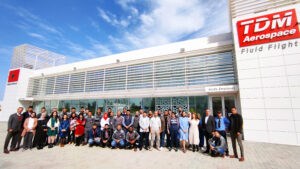
Support beyond initial operation
Before TDM contracted Schwarze-Robitec with supplying the two tube bending machines in 2019, a preliminary acceptance test was carried out at the German machine manufacturer’s plant in Cologne. Based on the machining of ten selected components, the bending machine manufacturer ensured that all specifications were met and already delivered flawless bending results there. TDM then put the bending machines from Schwarze-Robitec into operation in Casablanca in early 2020. Included in the delivery was a photometric measuring cell that can be used to determine tube geometries, lengths between bends, bending angles and other important parameters. Following the commissioning, TDM employees received extensive on-site training, with follow-up training taking place several months later. “One of the biggest challenges was that we had to implement production here on site without skilled workers,” emphasizes Jürgen Viehrig. “This meant that training was crucially important for us. In Schwarze-Robitec, we found a reliable partner who actively supported us beyond delivery and commissioning.” The supplier-customer relationship, he explains, is open, honest, trustful and transparent. At Schwarze-Robitec, customer proximity is an integral part of the package, even across distances. Hence, the experienced service team is on hand to identify and solve potential problems remotely or to carry out maintenance and repair work directly on site. Over the next few years, the Tier 1 supplier intends to expand its capacities and is therefore planning to install up to three more tube bending machines. In doing so, TDM hopes to continue working with the experienced specialist from Cologne.
